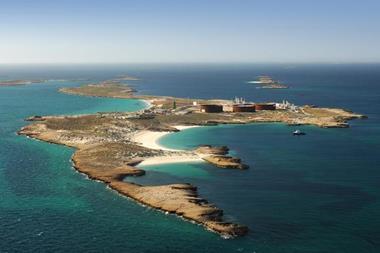Government intervention in the emerging market resource sector is growing. But what recourse do companies have against the power of the state?
Emerging market states are increasingly seeking larger shares in natural resources sectors, leading to partial and total expropriations and aggressive measures against foreign investors.
Oil, gas and mining companies cannot afford not to be in resource rich emerging market regions just because indigenous movements make it risky.
Venezuelan president Hugo Chavez leads perhaps one of the most interventionist state. In a nationally televised address in April, Chavez ordered the nationalisation of Venezuela’s cement industry.
Rafael Ramírez, Minister of Energy and Oil, said the Venezuelan government wanted to control the cement industry through a scheme in which the government would have at least a 60% stake with operative and administrative control.
CEMEX, one of the main foreign players in the Venezuelan cement industry, immediately expressed its willingness to engage in a dialogue with the authorities to find a mutual solution.
Other parts of the world are just as risky. International businesses are having a tough time competing with state-controlled entities and state-supported firms from China, India and Russia. Africa is already a key area of Chinese government investment.
State-owned sovereign wealth funds are also becoming increasingly important players in the international monetary and financial system. The IMF has emphasized the need to work on best practices for countries receiving investments from these vehicles.
“Foreign investors have rights and recourses that they can and should vigorously defend and pursue.
Robert Amsterdam, of Amsterdam and Peroff
The traditional approach to dealing with these risks is inadequate, said Robert Amsterdam, of Amsterdam and Peroff. ‘Foreign investors have rights and recourses that they can and should vigorously defend and pursue,’ he said.
Amsterdam argues that businesses should assess important political and legal issues before resorting to investor-state arbitration.
One such approach, he said, is to demonstrate to local communities that your goal is to become part of the infrastructure. ‘If an investor can structure operations in such a way as to be either economically or politically invaluable to the host government, that may buy considerable protection,’ he stressed.
The lawyer also made the point that foreign investors can seek recourse both inside and outside of the resource nationalist state.
Taking on state-influenced courts and regulatory authorities is no picnic, admitted Amsterdam, who has experience with cases in Guatemala, Bolivia and Venezuela. But, he argued, in many of these states a free press does still exist to some extent. Launching a legitimising media campaign based around issues of human rights, can be a powerful message.
He added: ‘There is a stronger than ever international legal framework for investors, with more and more innovative options to bring disputes into rule of law jurisdictions.’




















No comments yet